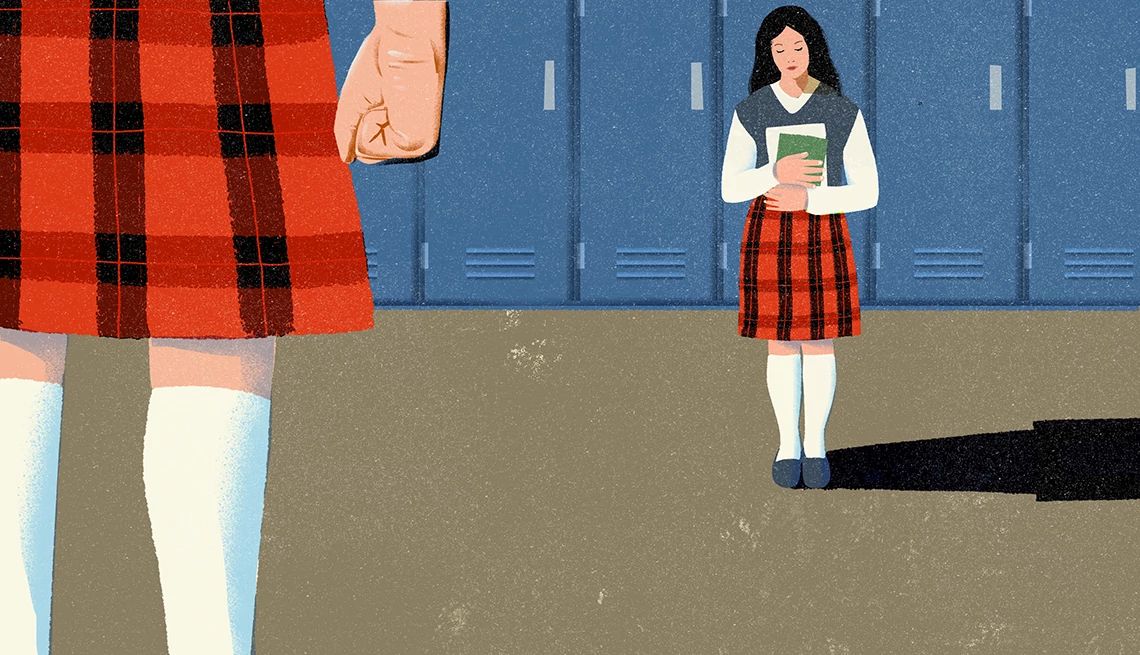AARP Hearing Center


One of my most vivid and painful memories from my school days revolves around a particularly mean girl. To protect the guilty, I’ll call her Sally.
Once a week, Sally would puff up her chest and declare which of her playmates would be the target of her meanness. She would rally her followers (mean girls always have their wannabees) to go along with her.
The year was 1960. I was 12. Back then, girls had to wear skirts to school. Mind you, they could not be shorter than the top of our knees. At least we weren’t in corsets and layers of petticoats, I suppose. Sally’s favorite sport was pulling down a victim's underpants and running off.
Looking back, it seems like such a silly, almost innocent, thing to do. There was no physical harm involved. No weapons. Not even any swear words. But a fragile ego like mine could be wounded for days.
I was shy to the point of being afraid of my own shadow and that meant I was Sally’s victim several times. The most heartbreaking “pantsing,” as I called it, left me friendless at lunchtime. I remember sitting in the bathroom stall, legs up on the cold toilet seat, eating my salami sandwich and creating words out of the scratches on the back of the door.
My heartbeat would quicken every time a girl walked in, and I hoped not to be discovered.


Subscribe Here!
You can sign up here to AARP Experience Counts, a free email newsletter published twice a month.
This was before social media, cell phones, FOMO and texting. In retrospect, this was a blessing. Once I arrived home, I could leave Sally’s meanness and my mortification on that playground. There were no taunting text messages. There was no “reel” of me standing in the middle of the playground, tears rolling down my face. There was no TikTok of Sally and her entourage dancing around me.
I had a hard enough time figuring out my place in the world. Social media may have put me over the edge.
But Sally was consistent. By the next day, I knew someone else would be her victim.






























































More From AARP
‘No Greater High’: Getting the Band Back Together After Age 50
Old friends regroup to feel the on-stage high one more time5 Tips for College That Still Hold True
It doesn’t need to be all decision fatigue and worry about rankingsAs You Age, Is It Time to Rethink Your Bucket List?
For National Bucket List Day, here’s how to take stock of your life goalsRecommended for You